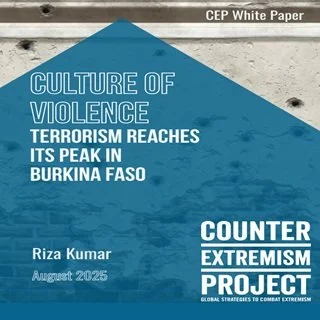By Riza Kumar
Culture of Violence: Terrorism Reaches Its Peak in Burkina Faso paints a harrowing picture of a nation consumed by escalating extremist attacks, militarized ethnic tensions, and a state strategy that empowers untrained civilian militias with deadly consequences.
Key points include:
Burkina Faso ranks #1 in global terrorism deaths, with over 3,000 civilians killed in 2024 alone.
State-sponsored militias—the Volunteers for the Defense of the Homeland (VDP)—now outnumber the national army, but their lack of training and ethnic bias has fueled further violence.
Over 80% of Burkinabe territory is under the control of terrorist groups, with projections estimating nearly 4 million people could be internally displaced by year-end.
Human rights abuses are rampant: civilian massacres, ethnic targeting—particularly of the Fulani—and extrajudicial killings are now common features of the government’s counterterrorism effort.
Public trust in the state is collapsing, while extremist groups like al-Qaeda affiliate Jama’at Nusrat al-Islam wal Muslimeen (JNIM) are increasingly seen as more reliable providers of security.
The report warns that the Burkinabe government's hardline, militarized approach—relying on loosely controlled militias and sidelining local peace negotiations—has entrenched a self-perpetuating “culture of violence.” This normalization of brutality not only undermines stability in Burkina Faso but risks setting a dangerous precedent for the broader Sahel region.
Riza Kumar, Senior Research Analyst, CEP and author of the report, said:
“Without law, accountability, or a credible strategy, Burkina Faso’s counterterrorism model is spiraling into a humanitarian catastrophe. Security solutions that disregard human rights and social cohesion are destined to fail—and are only empowering the extremists they aim to defeat.”
CEP calls for an urgent reevaluation of counterterrorism strategy in Burkina Faso, emphasizing demilitarization of rogue militia forces, restoration of local mediation mechanisms, and the increased recognition and integration of marginalized communities across all security sectors.
New York; Berlin; London: Counter Extremism Project, 2025. 24p.



